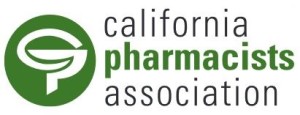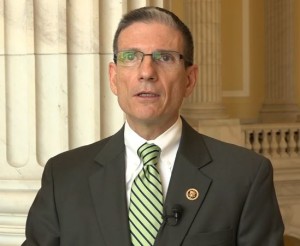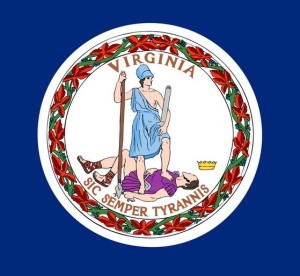- The State of Provider Status: An Update for Pharmacy Students (pharmacytimes.com)
As the pharmacy landscape shifts and evolves, pharmacists across the country continue to work toward a common and crucial goal: gaining legislative recognition as health care providers...Gaining provider status is a complex and multifaceted objective, but at its heart is the exclusion of pharmacists from the Social Security Act. Exclusion of pharmacists from the SSA prevents many state and private health care plans from compensating pharmacists for patient care services...the omission of pharmacists from the SSA also creates barriers for Medicare beneficiaries who seek to utilize these services in outpatient settings...While provider status efforts are crucial to the pharmacy profession, they’re equally important to patients...Gaining ground in the states...a number of state laws passed in 2015 have given advocates much to celebrate.
- North Dakota Governor Jack Dalrymple signed into law 4 bills that expanded the role of pharmacists in the Peace Garden State and recognized them as health care providers...
- ...Washington Governor Jay Inslee’s signing of SB 5557...The first bill in the country to require the inclusion of pharmacists in health insurance provider networks...amends the state’s Every Category of Health Care Providers law, which obliges commercial health plans to include every category of health care provider within an individual’s participating provider network.
- ...Oregon governor Kate Brown signed HB 2028 into law...bill permits pharmacists to receive reimbursement for performing clinical pharmacy services, enabling them to more fully use their skills and knowledge to treat patients.
- ...the federal arena...federal recognition remains the primary goal for many proponents of provider status...a proposed bill has given advocates hope that such a victory is well within reach...the Pharmacy and Medically Underserved Areas Enhancement Act would amend the SSA to cover pharmacists’ services under Medicare Part B, but only if these services are provided in areas of the country that the Health Resources Services Administration defines as medically underserved areas...The bill is awaiting approval...
Pharmacy students are the future of the profession and...they will be the ones most impacted by provider status...Earning legislative recognition as health care providers will ensure that the next generation of pharmacists is able to treat patients to the full extent of their knowledge and abilities...
- Medi-Cal Expands Access to Pharmacy-Based Immunizations (myemail.constantcontact.com)California Pharmacist Association - Payment for Pharmacist Services - White Paper (cpha.com)
Last week, the Department of Health Care Services announced the addition of a number of adult vaccines to the Medi-Cal fee-for-service outpatient drug benefit. This means that Medi-Cal beneficiaries in the statewide fee-for-service network can now receive coverage for adult immunizations when administered in a pharmacy. Newly added vaccines include those for Hepatitis A, Hepatitis B, HPV, MMR, and more. Coverage does contain vaccine-specific restrictions...CPhA (California Pharmacist Association) applauds this coverage change to improve patient access to pharmacists' services. "We are excited to see momentum in many areas of SB 493 implementation, including expanded immunizations," said CPhA President Sarah McBane, PharmD. "As more of SB 493's authorities gain recognition by Medi-Cal and other payers, pharmacists stand ready to assist our patients."
- Year in review: Advocating for provider status legislation (pharmacist.com)The Expanding Role of Pharmacists in a Transformed Health Care System (nga.org)
The campaign to pass the Pharmacy and Medically Underserved Areas Enhancement Act (H.R. 592/S. 314) made major strides in 2015. The legislation enables patient access to, and coverage for, Medicare Part B services by state-licensed pharmacists in medically underserved communities. H.R. 592 was reintroduced in the House of Representatives in January 2015… a companion bill, S. 314, was introduced in the Senate...APhA continued its leadership role in growing support for the legislation. PharmacistsProvideCare.com, APhA’s website dedicated to the campaign on provider status, was revamped with information, resources, and tools to help pharmacists advocate to elected officials, policy makers, and decision makers…At the state level, 94 bills—three times as many as last year—were introduced to address patient access to pharmacists’ care. Sixteen bills were introduced on the definition of pharmacists as providers; 53 bills were introduced addressing scope of practice issues, including collaborative practice agreements; and 25 bills were introduced on payment for services. In January, the National Governors Association issued a report recognizing the value pharmacists provide in improving public health and urging states to "consider actions to expand pharmacists’ scope of practice." In April, North Dakota passed a series of measures increasing opportunities for pharmacists and their patients. Other states like Washington and Oregon followed suit..."Our goal in 2016 is to keep the momentum going,"…."In addition to success at the state level, we hope to see continued progress on federal legislation."
- Officials assure advocates that push to privatize Medicaid services will move slowly, be transparent (reviewjournal.com)Managed Care Expansion (dhcfp.nv.gov)
Nevada officials on Wednesday assured advocates in Clark County that any process to privatize Medicaid services for the elderly, blind and disabled will move slowly and will be transparent...Advocates with Nevadans for the Common Good, a coalition of Las Vegas Valley institutions advocating for several issues including protection for vulnerable senior citizens...met privately with state officials. Attendees at the closed-door meeting included Richard Whitley, director of the state's Health and Human Services Department...Barbara Paulsen, leader with Nevadans for the Common Good, said the meeting was positive and that advocates were pleased with what they learned. She said the coalition's push for transparency and the Las Vegas Review-Journal's reporting to get the information on the potential switch out to the public may have had an "impact on the process."..."Our concern was that the decision was already made and it was just all going to go very quickly without getting any input (from the public)," she said Wednesday. "That doesn't seem to be the case."...After gathering information, state officials will develop a report that will be sent to the governor and the Legislature, she said. The governor would ultimately have to make a recommendation, which the state's Interim Finance Committee would have to approve, according to the legislation.
NOTICE OF TOWN HALL AND LISTENING SESSION ON MEDICAID MANAGED CARE EXPANSION OPTIONS
- 1/20/2016 Clark County Library - 1401 East Flamingo Road - Las Vegas
- 2/2/2016 Sahara West Library - 9600 West Sahara Avenue - Las Vegas
- 2/2/2016 Summerlin Library - 1771 Inner Circle - Las Vegas
- 2/17/2016 William Bee Ririe Hospital - 1500 Avenue H - Ely
- 2/19/2016 Humboldt General Hospital - 118 E. Haskell Street - Winnemucca
- Congressman Heck pushing for EMS to continue to use controlled substances (kolotv.com)
A Nevada Congressman is pushing to make sure emergency medical teams retain the ability to administer life-saving medicine in the field. Congressman Joe Heck says the Drug Enforcement Agency wants certain drugs to be used only in hospitals, because of fears over the accountability of controlled substances and how they are administered. Heck says paramedics should be able to do the job they’re trained to do...current law states that medical directors can create standing orders that apply to emergency situations. If a patient meets certain criteria, a substance can be administered in the field...He says the DEA wants to take that ability away from paramedics, saying they can no longer use controlled substances, even under these standing orders from medical directors. Heck says this will hinder a paramedic’s ability to give quality care to a patient. He says this is an issue especially in rural areas, where a patient could be in an ambulance for a long time without proper care..."There’s a way to make sure that we can ensure the accountability of these controlled substances while still allowing the paramedics to administer these life-saving materials...this bill will specify the protocol for a physician creating a standing order. The bill also says standing orders must be made available for Attorney General Loretta Lynch at her request...
- Virginia the latest state to push drug pricing transparency bill (statnews.com)
Like a legislative game of whack-a-mole, lawmakers in yet another state are pushing a pair of bills that would force drug makers to reveal their costs. Although similar efforts have either failed or stalled in 10 other states, Virginia is now the latest venue where legislators hope a law will provide some transparency into the drug pricing process...Companion bills were introduced in the Virginia House and Senate last month to require drug makers to provide detailed information for each medicine sold with a wholesale cost of $10,000 or more for a single course of treatment. This would include costs for R&D, manufacturing and marketing, as well as price changes, profits, and financial assistance for consumers. Data would appear on a public website...In the absence of action at the federal level, however, more state officials are trying to take matters into their own hands...the pharmaceutical industry has largely succeeded in keeping such legislation at bay...
- New York Governor Andrew Cuomo seeks to cap some drug prices (statnews.com)2016 -17 NEW YORK STATE EXECUTIVE BUDGET HEALTH AND MENTAL HYGIENE ARTICLE VII LEGISLATION (budget.ny.gov)Pharmacies say access to specialty drugs could be diminished if measure passes (crainsnewyork.com)
New York Governor Andrew Cuomo has become the latest entrant in the escalating war over rising drug prices with a budget provision that would effectively cap prices and require drug makers to provide a raft of information about their costs...proposal marks yet another high-profile attempt to force the pharmaceutical industry to respond to the intensifying clamor over the cost of medicines...Under the proposal...the state health department would "develop a list of critical prescription drugs for which there is a significant public interest in ensuring rational pricing." The department would then assess the value of the drugs in order to set a "ceiling price" and could require a minimum rebate to the state Medicaid program...the administration wants companies to provide data about development, manufacturing, and marketing costs for drugs on this list...also require drug makers to submit information about the prices charged other purchasers in the state and outside the United States, any rebates offered customers, and profit margins...the Pharmaceutical Research and Manufacturers of America...have "significant concerns" with the proposal..."Not only will implementing price controls have a very negative impact on innovation and send a signal that risk taking will not be rewarded, but also the so-called ‘transparency’ information called for in the proposals would be virtually impossible to achieve because it does not include the cost of failures inherent in the search for new treatments and cures.
- With drug costs rising, it’s time for pharma companies to open their books (statnews.com) Budget of the United States Government, Fiscal Year 2017 (whitehouse.gov)
For years, drug makers have argued that the rising prices of prescription medicines reflect, in part, the rising costs of discovery and development...Buried inside the White House budget proposal released last week is language (on page 62) that would require drug makers to publicly disclose various data, including research and development costs. The administration hopes to use the information as part of a plan to negotiate lower prices for the Medicare drug program, known as Part D...Obama joins a growing list of lawmakers seeking transparency in order to understand drug pricing...From California to Massachusetts, state legislators have proposed bills that would force drug companies to open their books so the public can see how much is spent to develop, manufacture, and market new medicines. Just last month, New York Governor Andrew Cuomo included a disclosure demand in his own state budget proposal...Whether these efforts will succeed is unclear. Drug makers have been lobbying aggressively to defeat the bills and, indeed, in many states the legislation has stalled.
- Pharmacists take on medical cannabis dispensing role in three states (pharmacist.com)
Pharmacists in Connecticut have been dispensing medical cannabis for more than a year now. The state’s medical cannabis law requires that a board-certified pharmacist be onsite to dispense the product at a medical cannabis dispensary, of which there are currently six in Connecticut...Minnesota pharmacists began dispensing medical cannabis under the state’s 2014 cannabis legislation, and now New York’s law, also passed in 2014, includes language requiring pharmacists to dispense..."There are now three states that have a solid health care model [with a pharmacist to dispense]," said Joseph Friedman, BSPharm, founder of a medical cannabis dispensary in Illinois. Friedman is a vocal supporter of pharmacists’ role in the growing industry. No mandate under Illinois’ medical cannabis law requires pharmacists to dispense, however...Under federal law, cannabis is a Schedule I drug, but Connecticut’s law reclassifies it as a Schedule II drug. Because of this change, medical cannabis goes through the same process as other controlled substances in Connecticut, meaning it’s tracked through the Connecticut Prescription Monitoring and Reporting System, a statewide database updated weekly with patients’ prescription data...University of Minnesota College of Pharmacy is also looking into incorporating education courses about medical cannabis into the pharmacy curriculum...Including New York, 23 states and the District of Columbia currently have laws that legalize and regulate cannabis for medicinal purposes. It’s uncertain, at this point, if and how pharmacists will be part of other states’ dispensing operations...
- Senate Panel Punts on Big Medical Bill (morningconsult.com)
The Senate will not put forth a comprehensive medical innovation bill that would be a companion measure to the House’s 21st Century Cures bill. Instead, lawmakers are opting to work on several smaller bills that have bipartisan support. In recent weeks, aides said committee members hit partisan snags when discussing a bigger bill...The Health, Education, Labor, and Pensions Committee will hold three separate markups, deliberating a few “easier” bills in February to “get our sea legs on working on bipartisan FDA/NIH bills,” according to a senior GOP committee aide. The overall goal of the committee’s work will be to accelerate the development and approval of new medical cures...The House passed its 21st Century Cures bill last summer. Energy and Commerce Chairman Fred Upton guided the bill to a 344-77 passage on the floor, but HELP Committee Chairman Lamar Alexander has long said the Senate would produce its own version...Both chambers’ goals overlap, including giving the National Institutes of Health additional funding and reforming drug approvals at the Food and Drug Administration.








